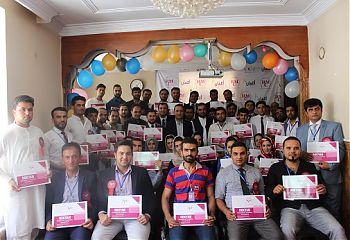
Briefing:
Rokyan Management Consultancy International FZE (RMCI) is leading training and consulting firm providing training services in more than 21 countries.
It has nurtured excellent relationship with Ministry of Information and Technology by offering them quality services anytime Rokyan was assigned.
Rokyan has been serving majority ministries of Islamic Republic of Afghanistan since 2013.
Capacity Building is necessary for the team’s development and orienting the employees on the new trends, existing challenges, modifications of subject areas and improvements to be considered for the enhancement of the departments.
Rokyan Management Consultancy International FZE
Training Title: Effective Communication, Consumer Behavior and Sales Management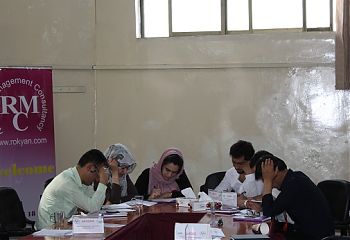
Commencement: July 21, 2018
Closing: July 26, 2018
Venue: Rokyan MGT Consultancy Compound, St#15, Lane #02, Wazir Mohd. Akbar Khan, Kabul, Afghanistan
Total Participants:46
Client:
Afghan Telecom
Course Outline:
Major topics which were covered under the three titles were as below:
Effective Communication:
Communication: Definition
Communication Model
Body Language
Communication Complexity
Communication: Importance
How to deliver the messages effectively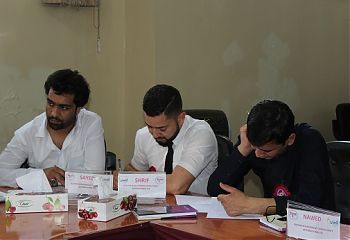
How to resolve conflicts
How to infer?
What points to be considered while delivering a message?
The complexity of sending a message
Listening Skills:
Types of Listening
Presentation Skills
Channels of Communication
Types of Communication
Types of Questions
Consumer Behavior
- Consumer Behavior: Definition
- Consumer Behavior Vs Customer Services
Terminologies:
- Prospect
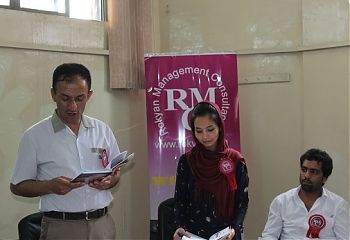
-
- Client
- Customer
- Consumer
Subject Draws its concepts from:
- Psychology
- Sociology
- Anthropology
- Economics
- Marketing
Why study Consumer Behavior?
The study of consumer behavior covers:
- Consumers in the market place
- Consumers as individuals
- Consumers as decision makers
- Consumers and subculture
- Consumers and cultures
Segment Bounding:
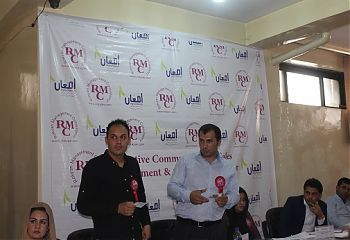
-
- Demographics:
o Age, gender, education, income and occupation
- Psychographics
o Interests, opinions, values, lifestyle
- Psychological influences
o Personality, self-image, risk involvement, attitude and beliefs
- Social influences
o Culture, sub-culture, social class, reference groups
- Marketplace behavior
o Recognizing needs, response to marketing an communication, price and produce acceptance
- Consumption behavior
o Situation, usage rate, satisfaction, and loyalty
- Model of Consumer Behavior
o Marketing other Stimuli
- Product, Price, Place and Promotion
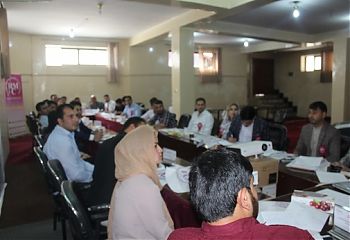
-
- Economic, Technological, Political and Cultural
o Buyer’s Black Box
- Buyer’s decision process
- Characteristics affecting consumer behavior
o Buyer’s Response
- Product Choice
- Brand Choice
- Dealer Choice
- Purchasing Timing
- Purchase Amount
- Growing Consumer Markets
o New Retail line-ups
- Price Centric
o Lifestyle
- Occasion Centric
o Outdoor living market
o Consumer Electronics
o Enhanced Experience Businesses
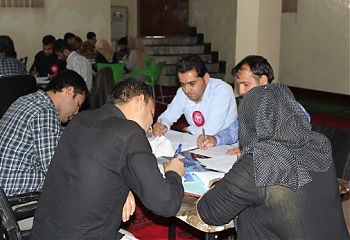
-
o Anti-aging products and services
o Health as a national hobby
o High-end sports apparel and equipment
o Safe packaging, pure contents and green concerns
- Understanding E-Commerce:
o Product Representation
o Product Prices
o Product Selection
o On time delivery
o Product information
o Level and quality of consumer support
o Product shopping and handling
o Posted privacy policy
o Site navigation and appearance
Sales Management:
Sales Management: Definition
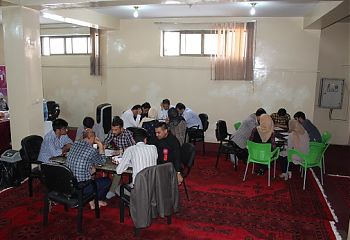
Sales VS Marketing
Evolution of Marketing
Sales Management:
- Firm
- Sales Managers
- Personal Sales Rep
- Customer
What are the sales managers goals?
- Sales
- Revenues
- Profits
- Market Share
- Controlling internal costs
How Do Sales Managers Obtain Their Goals?
- Knowledge of the sales environment
- Planning for sales
- Recruiting the sales force
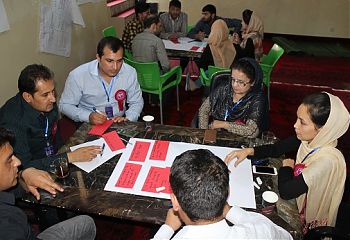
-
- Training the sales force
- Motivating the sales force
- Supervising the sales force
Sales Process:
- Prospecting and Qualifying
- Pre-approach
- Approach
- Presentation/Demonstration
- Handling Objections
- Closing
- Follow Up
Four Sales Channels
- Over the Counter Selling
- Field Selling
- Tele-marketing
- Inside selling
Characteristics Selection Sales and Marketing Personnel
Compensating Salespeople
- Salary
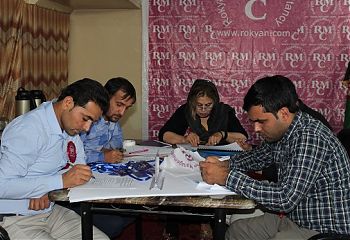
-
- Benefits
- Commission
- Bonus
- Combination of All
Evaluating Salespeople:
- Expense Reports
- Call Reports
- Annual Territory Marketing Plan
- Work plan
- Sales report
Sales Management Strategies:
- Power hours
- 10 by 10 Strategy
- 4X4 Strategy
- Voice mailing
- Do the Math of Getting No
Types of Callings:
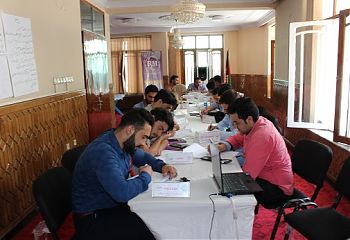
-
Cold Calling
- Warm Calling
- Hot Lead Calls
- Social Calling/Selling
Types of Customers:
- Talkative Customer
- Know-It- All Customer
- Suspicious Customer
- Angry Customer
- The indecisive Customer
Attitude Checklist
Skills for Customer Service
Presentation and Manner
A Positive First Impression
What to Avoid
Service Standards
Dealing with difficult Behavior
Proceedings of the Training:
Training commenced on July 21,2018 @ 1:00 PM. The trainees were divided into two groups. Though it was agreed to have both teams trained in one class. Rokyan, for better implementation of the training, divided the team into two to maximize the learning output and improve the impact.
As the training was composed of three major areas of:
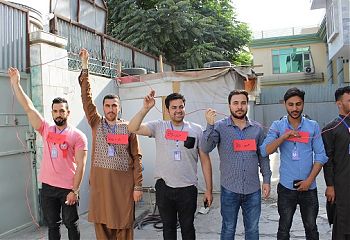
-
- Effective Communication
- Customer Behavior
- Sales Management
Therefore, each subject was assigned two days studies. Trainers were conducting pre and posttests at the commencement of the beginning and ending of the training respectively.
On daily basis, participants were assigned to Course After Action Review. Course after Action review approach was pushing the participants to review their lessons on regular basis and get ready by the next day to the questions and answer sessions.
As post lunch classes are affected by food and weather, therefore, the trainers on regular basis tried to keep participants alive and awake by assigning them group works, role plays and showing them videos.
Active participants were offered gifts as sign of motivation. Daily training were evaluated by participants and their ratings were shared with both Afghan Telecom and Rokyan administration. On the last day of the training, participants were assigned to:
- Review of the last 5 days training in order to check the learning level
- Develop action plans to see how they are going to implement the training back to their organization on their returns.
Strengths of the Training:
- All participants were from the same organization
- Class was divided into two groups of very senior employees and very junior employees. The reason for division was covering the classes with the highest level of effectiveness and applying greatest efficiency
- Participants were active in the studies
- Participants were observed as young, dynamic and learning oriented
- The training was organized in calm, relaxed and lovely learning environment
- The training was facilitated by two trainers who have got rich experience of Communication, Consumer Behavior and Sales Management
- Participants were involved in number of group works, exposed to problems and involved in scenarios
- Role plays were designed to see how the participants are handling a practical scenario
- Trainers made videos of the participants and they were shared with the the HR/Training Directorate of Afghan Telecom
- Feedback of the participants/Evaluation of the training was shared with HR/Training Directorate on regular basis. This showed that Rokyan and Client organization, both, were keeping tight-eye on the Check and Balance of the training
- Training was 50% theory and 50% practical
- Healthy refreshment was managed by Rokyan so that the participants feel energetic, healthy and ready for learning @ next level
- Rokyan showed greatest flexibility by accepting free participants from Afghan Telecom and offering buffet lunch on the last day of the training
- During the training, active participants were awarded with gifts so that they are motivated and inspire those who are slow or lazy to move
- Daily evaluations were in place so that both HR/Training Directorate of Afghan Telecom and Rokyan Management understand what the dynamic learning expectations of the participants are. This was giving Rokyan chance to modify the learning materials and agendas on regular basis and updating the delivery methods
- ID Cards: To ensure serious security measures, all participants were checked seriously and they were offered ID cards. The ID cards which were very well designed with additional signs and symbols so they are not easily copied.
- Update Training Manuals: Three manuals which were update training materials with heavy exercises were provided to each participant during the training. Each manual was supplemented with number of assessments and exercises so that the participants can have them being back to their organizations.
- Stationary: quality stationary covering: notebook (diary), pen, pencil, sharpener-eraser were offered to each individual.
Assessment:
Rokyan conducted number of assessment through the participants so that they can teach the participants what the shortfall within their organizations are. The assessment were as below:
- Customer Service Culture Assessment:
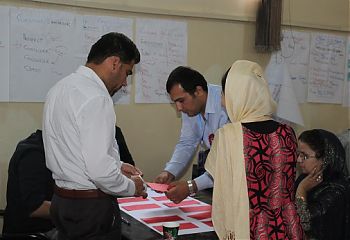
-
This assessment was analyzing the organization in different fields such as:
- Section 1: Taking Care of Small Things
- Section 02: Great Service Starts within
- Section 03: Training and development
- Section 04: Employee empowerment
- Section 05: Customer feedback loop
- Section 06: Accountability
- Section 07: Guest Recovery
- Section 08: Responsiveness
- Section 09: Teamwork
- Section 10: Good, Better, Best
- Section 11: Flexibility and Common Sense
- Section 12: Customer Service Skills Self-Assessment
- Customer Service Skills Self-Assessment:
Good Customer Service requires strong customer focus, specific personal characteristics and the ability t meet customer service challenges
- Section 01: Customer Focus
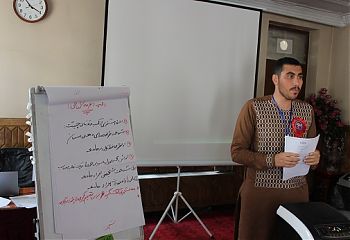
-
- Section 02: Personal Characteristics
- Section 03: Customer Service Challenges
- B2B Sales Checklist
Training Methods:
- Lectures
- Group Works
- Practical Scenarios
- Role Plays
- Case Studies
- Examples, Storytelling and situations
- Brainstorming
- Videos showing
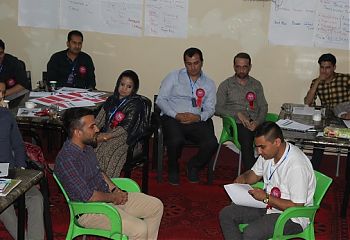
ontributing Points:
- Early planning of the events
- Assigning more trainings on:· Introducing the teams in different batches
o Project Management
o General Management
o Time and Stress Management
o Events Management
o Marketing Management
o Field Sales launches
o Product Design
o Human Resources Management to all managers
o Administrative Skills and Filing Management
o Facilities management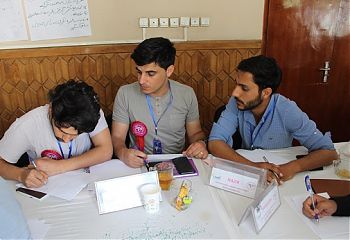
o Financial Management for Non-Finance Managers
o Procurement, Contracts Management and Negotiation Skills
o Effective Communication:
- Emailing
- Business Correspondences
- Memo Development
- Professional Report Writing
o Conducting Effective Interviews
o Performance Management and Designing Performance Management System
o Effective Supervision
o Fraud Detection, Investigation and Prevention
o Good Governance, Accountability and Leadership
o Leadership and Team Building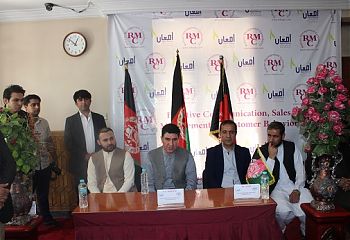
Special Thanks to:
It is his clear vision to improve the capacity of the staff to get them equipped for the next level.Sir Ajmal Ayan, the CEO of Afghan Telecom.
Zabihullah Wardak Saheb, HR Director:
Since really beginning, he was keen in the design and implementation of the training.
Ms. Hassina Alam, training manager: who coordinated, acted and kept tight eye on the implementation of the training.
Group Photo:
